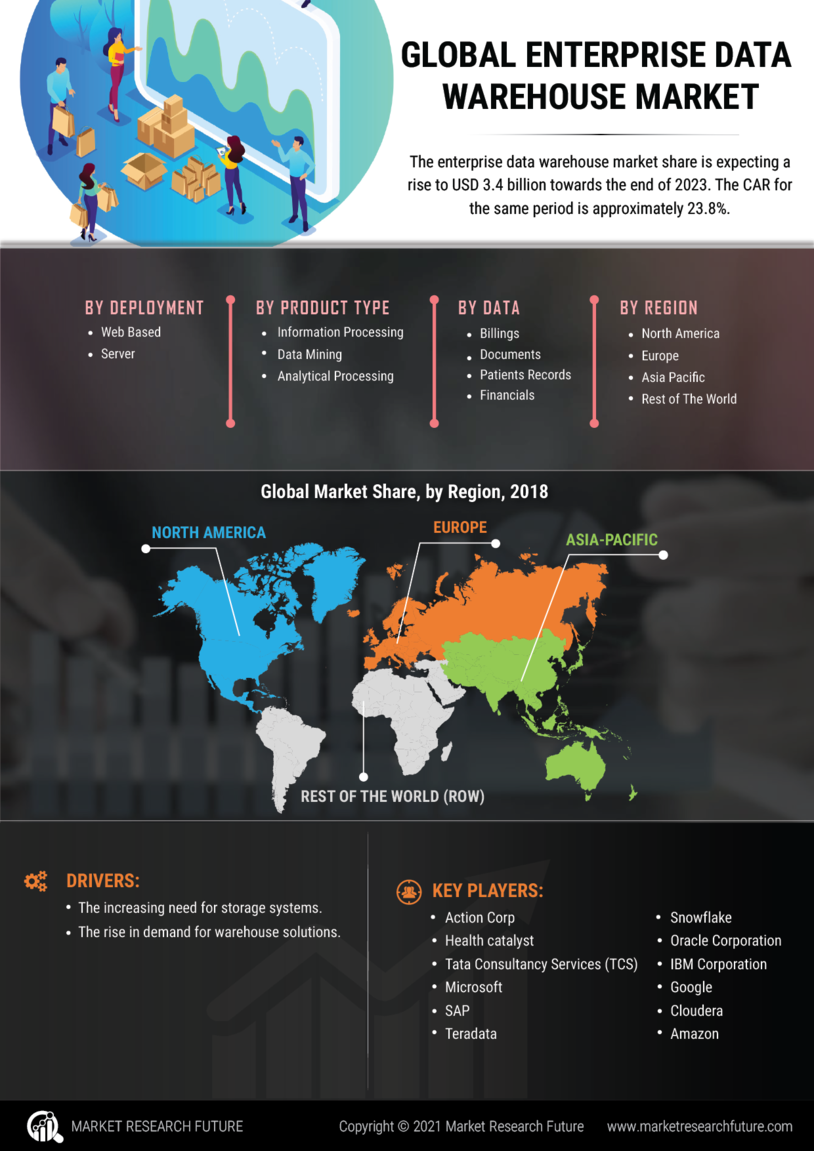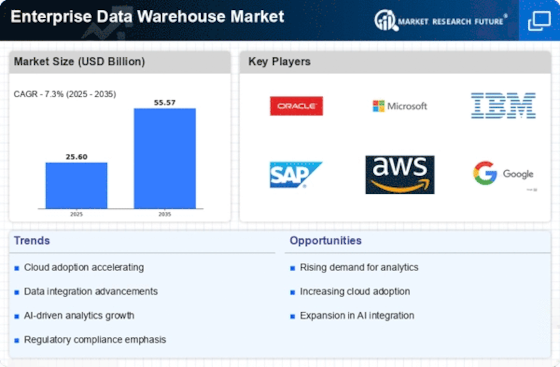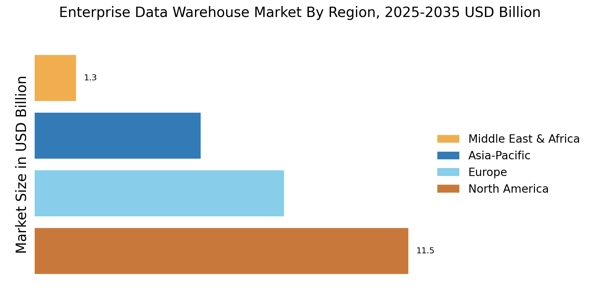Increased Data Volume
The exponential growth of data generated by organizations is a primary driver for the Enterprise Data Warehouse Market. As businesses increasingly rely on data for decision-making, the volume of structured and unstructured data continues to rise. According to recent estimates, the total amount of data created globally is expected to reach 175 zettabytes by 2025. This surge necessitates robust data warehousing solutions that can efficiently store, manage, and analyze vast amounts of information. Consequently, organizations are investing in enterprise data warehouses to ensure they can harness this data effectively, leading to enhanced operational efficiency and informed strategic planning.
Demand for Real-Time Analytics
The growing need for real-time analytics is significantly influencing the Enterprise Data Warehouse Market. Organizations are increasingly seeking to derive insights from their data as it is generated, rather than relying on historical data alone. This shift is driven by the desire to make timely decisions that can enhance competitive advantage. As a result, enterprise data warehouses are evolving to support real-time data processing and analytics capabilities. The market for real-time analytics is projected to grow at a compound annual growth rate of over 30%, indicating a strong demand for solutions that can integrate real-time data into enterprise data warehouses.
Regulatory Compliance Requirements
Regulatory compliance is a critical factor driving the Enterprise Data Warehouse Market. Organizations across various sectors are subject to stringent regulations regarding data management, privacy, and security. Compliance with these regulations often necessitates the implementation of comprehensive data warehousing solutions that can ensure data integrity and security. For instance, regulations such as GDPR and HIPAA require organizations to maintain accurate records and protect sensitive information. As compliance requirements become more complex, the demand for enterprise data warehouses that can facilitate adherence to these regulations is likely to increase, thereby propelling market growth.
Shift Towards Cloud-Based Solutions
The shift towards cloud-based solutions is a significant driver of the Enterprise Data Warehouse Market. Organizations are increasingly adopting cloud technologies to enhance scalability, flexibility, and cost-effectiveness in their data management strategies. Cloud-based enterprise data warehouses allow businesses to store and analyze data without the need for extensive on-premises infrastructure. This transition is reflected in market trends, with cloud data warehousing solutions expected to account for a substantial portion of the overall data warehousing market. As organizations seek to optimize their data operations, the demand for cloud-based enterprise data warehouses is likely to continue to rise.
Integration of Advanced Technologies
The integration of advanced technologies such as artificial intelligence and machine learning is reshaping the Enterprise Data Warehouse Market. These technologies enable organizations to automate data processing, enhance predictive analytics, and improve data quality. By leveraging AI and machine learning, enterprise data warehouses can provide deeper insights and facilitate more informed decision-making. The market for AI in data warehousing is expected to witness substantial growth, with projections indicating a potential increase in investment in AI-driven data solutions. This trend suggests that organizations are increasingly recognizing the value of integrating advanced technologies into their data warehousing strategies.


















